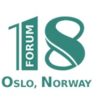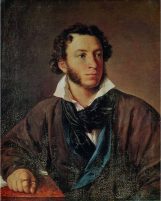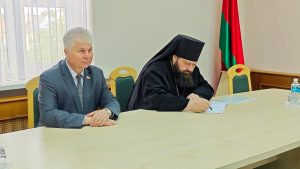Forum18. BELARUS: Christian leaders opposing regime violence and war on Ukraine targeted


Organisation"Forum 18"
Норвежская организация, целью которой является содействие религиозной свободе.
Felix Corley, Forum 18, and Olga Glace, Forum 18
Catholic, Greek Catholic, and Protestant religious leaders have been targeted for opposing regime violence after the 2020 election fraud, or opposing Belarus’ role in Russia’s war against Ukraine. The homes of several Catholic priests were raided in late March 2022. One was given a 10-day jail term, while another had to flee the country. A human rights defender observed that they are targeted “as they have authority in their community and work with a wide range of people, including young people.
Human rights defenders think that the regime is targeting for prosecution religious leaders prominent in their local communities if they publicly oppose regime violence following the fraudulent 2020 presidential election, or oppose Belarus’ role in Russia’s renewed invasion of Ukraine. The homes of several Catholic priests and others were raided in late March 2022.
Of two Catholic priests targeted in March in the northern Vitebsk Region, Fr Aleksandr Baran was given a 10-day jail term, while Fr Andrzej Bulczak – a Polish citizen who has served for 14 years in Belarus – fled the country ahead of a court hearing that could have jailed him (see below).
On 25 March, police raided the homes of Baptist Pastor Roman Rozhdestvensky in Cherikov (who was fined about two weeks’ average wage) and Greek Catholic priest Fr Vasily Yegorov in Mogilev (who was fined more than one month’s average wage). Fr Yegerov had displayed a “Ukraine, forgive us” sticker on his car (see below).
The late March raids came as Catholics (including Greek Catholics) and Protestants were in the middle of Lent. This precedes Holy Week and Easter, one of the most important festivals of the year. In 2022, western Easter (celebrated by Catholics and Protestants) falls on Sunday 17 April.
Fr Aleksandr Baran, who was given a 10-day jail term, spoke to the police about why he was being singled out. “I tried to explain to them that hundreds of thousands of Belarusians at that time posted similar likes [of pages protesting against regime violence and election falsification] – does it follow that they too should be prosecuted?” he told Katolik.life.
Fr Baran observed that the regime is “meddling in the life of every person, in the life of the Church, they want to destroy its authority and shut people’s mouths.” He commented after his arrest that “they were already prepared for my arrest; there were piles of papers and some other documents about me lying there” (see below).
Police in Postavy refused to discuss with Forum 18 why it had taken action against both Fr Baran and Fr Bulczak (see below).
When the case against Fr Bulczak reached court, the regime’s senior religious affairs official, Plenipotentiary for Religious and Ethnic Affairs Aleksandr Rumak, informed Fr Bulczak’s bishop that he had stripped the priest of his permission to conduct religious work in Belarus. A colleague of Rumak told Forum 18 that he “does not give interviews by phone” (see below).
“There always was surveillance”
“Although these religious leaders are not necessarily being targeted for exercising freedom of religion or belief,” a freedom of religion or belief defender told Forum 18, “they are being targeted as they have authority in their community and work with a wide range of people, including the youth. Police are watching their social media.”
State surveillance of clergy also extends beyond any social media activity. Fr Bulczak noted that throughout his 14 years’ service in Belarus from 2007, “there always was surveillance”. He noted that all foreign clergy are under such surveillance. “My phone was listened in to, for example,” he told Forum 18 from the Polish city of Gdansk on 13 April.
While all clergy are under some level of surveillance, Fr Bulczak said that foreign clergy face closer scrutiny. He pointed to the many Catholic priests who were forced to leave Belarus in recent years when the regime revoked or refused to extend their permission to serve.
Alongside the regime’s 2020 falsification of elections, violence against protestors, and jailing of human rights defenders, religious community leaders are also targeted. For example, in 2021 the Belarusian Orthodox Church fired many priests including Archbishop Artemy of Grodno, who spoke of a “general purge” as “not all church figures support the existing regime”.
Among others targeted, Catholic priest Fr Vyacheslav Barok fled to Poland. A public prosecutor claimed it is illegal to give Fr Barok a copy of an official warning he was read. The regime tried to stop singing of the hymn Mighty God and organised instead a pro-regime “prayer day”.
After Russia’s February 2022 renewed invasion of Ukraine, police in Minsk refused to say why they and OMON riot police were present in and around the city’s main Orthodox cathedral on 3 March when about 100 soldiers’ mothers attended regular evening prayers to pray for peace in neighbouring Ukraine. Officers checked the identity and photographed some of them before the service. Afterwards they detained four and questioned them at Central District Police Station for four hours. A journalist and her husband were detained at the cathedral and jailed for 15 days.
Police and officials of local Executive Committees’ Ideology Departments often visit religious leaders, including Catholic priests, Christian Vision notes. Forum 18 knows of one senior Catholic priest, who is not from Vitebsk Diocese, who received such a visit in March.
Detained for six days
Fr Aleksandr Baran, parish priest of St Andrew’s Catholic Church in the village of Lyntupy in Vitebsk Region, on the northern border with Lithuania, took part with many of his parishioners in a demonstration along the road opposite his church in August 2020.
Holding flowers but without any placards, the several dozen parishioners wanted to show their solidarity with victims of the state violence that followed the falsified presidential election earlier that month. Fr Baran is visible in a green T-shirt in a photo and a video published by the Vitebsky kurer news website on 14 August 2020.
Police summoned Fr Baran on Friday 25 March 2022, detained him and took him to the temporary detention centre in the town of Postavy. “It was like a bolt from the blue,” Fr Baran told the Katolik.life website on 1 April. “They invited me to the police station simply to talk. I went without even imagining what they wanted from me. And it turned out that they were already prepared for my arrest; there were piles of papers and some other documents about me lying there.”
Officials held Fr Baran for 72 hours (3 days) as they had brought a charge against him. However, on Monday 28 March, instead of releasing him, officials added a second charge, allowing them to hold him for another 72 hours.
This meant that Fr Baran was unable to celebrate Sunday Mass in his parish on 27 March. During his time in prison, he was able to maintain a Lenten fast, taking only bread and water, and praying. “Thank God they allowed my glasses and breviary [Catholic prayer book] to be handed over so that I could pray,” he told Katolik.life.
“Conditions in the detention centre were like something from the Middle Ages,” Fr Baran added. “Until they allowed a lawyer in to see me, the attitude to me was rude.”
Officials finally released Fr Baran on 30 March, handing him an order to appear in court in Postavy on 4 April.
“They are meddling in the life of every person, in the life of the Church”
Police accused Fr Baran of violating Administrative Code Article 24.23 (“Violation of the procedure for organising or conducting a mass event or demonstration”) for having the white-red-white flag of Belarus which is associated with the opposition, as well as a Ukrainian flag on his social media profile, which he added on 24 February, the day Russian forces invaded Ukraine.
Police also accused Fr Baran under Administrative Code Article 19.11 (“Distribution, production, storage and transportation of information products containing calls for extremist activities, or promoting such activities”) for likes and comments during 2020 on social media pages which the regime later deemed to be “extremist”.
“I tried to explain to them that hundreds of thousands of Belarusians at that time posted similar likes – does it follow that they too should be prosecuted?” Fr Baran told Katolik.life. “Why can’t a priest follow events happening in the country and the world and seek information from various sources? But they wouldn’t accept this.” He argued that officials were trying to discredit priests, who have authority in their communities.
“I told them that whatever the government, the Catholic Church will always do one thing – profess the truth of the Divine Gospel and not the policy of any particular party,” Fr Baran recounted. “And it was not the Church meddling in politics but the other way round – by their policy they are meddling in the life of every person, in the life of the Church, they want to destroy its authority and shut people’s mouths.”
Ten-day jail sentence
The hearing of Fr Baran’s case at Postavy District Court on 4 April lasted several hours. Parishioners as well as Vitebsk Diocese Bishop Oleg Butkevich and fellow clergy came to support the priest. Another priest of the diocese welcomed the presence of the bishop at the court hearing. “He always does so, aware of his responsibility and his solidarity with each of the priests,” he commented to Forum 18 on 12 April.
Two police officers who had examined Fr Baran’s social media pages and prepared the report of an offence testified against the priest.
The duty officer at Postavy District Police refused to comment or put Forum 18 through to his superiors on 8 April. The head of Postavy District Police, Colonel Dmitry Kutalev, put the phone down as soon as Forum 18 reached him on 11 April.
At the end of the hearing, the Judge sentenced Fr Baran to 10 days’ imprisonment. As he had already spent six days in prison this left four more days.
An official of Postavy District Court Chancellery refused to give Forum 18 any information about the case on 5 April.
Fr Baran was allowed an hour to get any items he needed before returning to the detention centre, where he was due to be held until 8 April.
However, on Wednesday 6 April prison officials unexpectedly released Fr Baran two days early without any explanation. Parishioners think he was released ahead of schedule because of widespread public criticism and their prayers.
“The priest was called out of his cell,” parishioners told Katolik.life on 7 April. “Most likely [the police] were told that there are many things to do before Holy Week – Palm Sunday [10 April] and Easter [17 April] – and he was released with no explanation or comments.” They said Fr Baran was tired, “but two days of freedom are a gift from God”.
The diocesan priest said Fr Baran had full support from the other clergy who also oppose the regime’s actions. He said the priest is continuing to serve in his parish “having gained more respect and affection from parishioners”.
Priest targeted for video opposing the war in Ukraine
In the town of Postavy, also in the northern Vitebsk Region, police in late March raided the home of Fr Andrzej Bulczak, parish priest of Jesus the Merciful Catholic Church. The priest is a Polish citizen who has served in parishes in Belarus for 14 years, eight of them in his Postavy parish.
During that time, Fr Bulczak has overseen the building of two new Catholic parish churches, first Transfiguration of the Lord Church in Chashniki. In 2015, he began building work on Jesus the Merciful Church in Postavy. The exterior is now nearing completion.
As a foreign citizen, Fr Bulczak needed permission to work as a religious leaderfrom the regime’s senior religious affairs official, Plenipotentiary for Religious and Ethnic Affairs Aleksandr Rumak. Fr Bulczak’s latest six-month permit was due to expire on 14 May, he told Forum 18.
On 7 March, Fr Bulczak posted a video of less than three minutes on Misericors, a YouTube channel he runs which has about 160 followers. The video recounts a letter a girl writes to a friend in Poland opposing the war in Ukraine. One photo in the video shows the logo of Belsat, a Polish-based television channel the regime has deemed “extremist”, as well as the white-red-white Belarusian flag used by protestors against the regime.
Police summoned Fr Bulczak to Postavy Police Station on 24 March, where officers threatened to open a criminal case against him. A police officer then drove him back home to seize his computer. As Fr Bulczak told Fr Vyacheslav Barok in a video interview after he fled to Poland that he had told the officer: “I hold no offence or evil against you. I know you are doing your job, but you could change your job to be able to live peacefully.”
(Fr Barok was charged in July 2021 for his opposition to election fraud and regime violence, and fled to neighbouring Poland.)
Postavy District Police refused to explain to Forum 18 why Fr Bulczak was targeted for prosecution. The head of Postavy District Police, Colonel Dmitry Kutalev, put the phone down as soon as Forum 18 reached him on 11 April.
After considering a criminal case against Fr Bulczak, Police then initiated an administrative case under Administrative Code Article 19.11 (“Distribution, production, storage, and transportation of information products containing calls for extremist activities or promoting such activities”). A hearing at Postavy District Court was set for 25 March. However, the Judge then sent back the case for further work.
On 29 March, before any new hearing, Fr Bulczak decided to leave Belarus. He is now back in Gdansk in his native Poland.
An official of Postavy District Court Chancellery refused to give Forum 18 any information on 5 April about whether the case against Fr Bulczak is continuing in his absence. Fr Bulczak told Forum 18 he does not know if it is continuing.
“Sorry I couldn’t say goodbye before leaving”
“Thank you very much for eight years of walking together on the path of faith,” Fr Bulczak wrote to his parishioners on 27 March in a message on the parish website. “Sorry I couldn’t say goodbye before leaving. The situation was very tense.” He hopes eventually to return to continue serving in Postavy.
A Catholic priest serving elsewhere in Vitebsk Diocese, who asked not to be identified, said parishioners are very upset about Fr Bulczak’s enforced departure. “He was a wonderful and very hard-working parish priest and naturally this is a severe and painful blow to parish life,” he told Forum 18 on 12 April.
Fr Bulczak told Forum 18 that “of course” he would like to return to continue serving in his parish. “But I can’t go back.”
The priest noted that Fr Bulczak’s sudden departure from Belarus will make it more difficult for the Church to be able to maintain enough priests to serve in local parishes.
“The number of Catholic priests in Vitebsk Diocese is limited,” the priest told Forum 18. “Under the current circumstances, the authorities will not give permission for another priest to come from abroad. The authorities seem to want to weaken the Church and keep out foreign clergy.”
The Deputy Head of the Ideology Department of Postavy District Executive Committee, Irina Loyko, refused to discuss either Fr Bulczak’s case or visits by officials to clergy due to their political views and statements. “I won’t give any comments on this issue,” she told Forum 18 on 8 April.
Regime removes priest’s permission to serve
On 26 March, Bishop Oleg Butkevich of Vitebsk Diocese, Fr Bulczak’s bishop, told him that the regime had stripped him of his permission to serve in Belarus. This was done by the regime’s senior religious affairs official, Plenipotentiary for Religious and Ethnic Affairs Aleksandr Rumak.
Forum 18 was unable to reach Plenipotentiary Rumak. “Aleksandr Alekseevich does not give interviews by phone,” an official told Forum 18 from the capital Minsk on 13 April. She declined to put Forum 18 through to any other official there.
All foreign religious workers require the Plenipotentiary’s permission to conduct religious work in the country, which must come at the request of a registered religious community.
Fr Bulczak’s permission was due to expire on 14 May 2022. “They never told me before the latest events that they wouldn’t give it to me again,” he told Forum 18.
Following Fr Bulczak’s detention, an official from the local Executive Committee, whom he declined to identify, told Fr Bulczak unofficially that if the court convicted him his permission to serve would be revoked.
Most of the foreign Catholic priests serving in Belarus are from neighbouring Poland. “Most get permission only for six months at a time, which the bishop then has to renew,” Fr Bulczak told Forum 18. “In one case this year, I heard that a priest only got three months.”
On 2 September 2020, Bishop Butkevich was given one day’s notice that the regime was annulling permission for Polish priest Jerzy Wilk to serve in his parish, giving no reason. Fr Wilk had served in Belarus since 2003. Other foreign Catholic and Orthodox priests had earlier been stripped of permission to conduct religious work in the country.
“Not normal law”
Fr Bulczak objects to the state requirement that any foreign priest legally in Belarus requires special permission before they are allowed to take part in public meetings for worship. “It is not a normal law that a visiting priest can’t pray in church,” he insisted to Forum 18. “It’s a Soviet law.”
Fr Bulczak added that while serving in Vitebsk Diocese he often invited fellow clergy from abroad to visit him. When one fellow priest from Poland stated on his visa application that he was a priest, the Belarusian Consulate told him that they would issue a visa only if he pledged not to take part in public meetings for worship during his visit. When the priest refused to make such a pledge, the Consulate refused to issue him with a visa.
Other religious leaders also targeted
Police have raided other religious leaders, citing their conduct during the 2020 protests against the regime violence following the falsified presidential elections.
On 25 March 2022, police in Cherikov in Mogilev Region detained Baptist Pastor Roman Rozhdestvensky, Christian Vision noted. Officers seized his computer and his phone. Officers cited the likes he had posted on Facebook in 2020. They prepared a case against him under Administrative Code Article 19.11 (“Distribution, production, storage, and transportation of information products containing calls for extremist activities or promoting such activities”) and released him that evening.
On 5 April, Cherikov District Court fined Pastor Rozhdestvensky 20 base units, 640 Belarusian Roubles, about two weeks’ average wage. The judge also ruled that his seized computer be confiscated, Christian Vision noted.
The court accepted the police contention that re-posting material from an independent television channel that the regime had declared “extremist”, as well as likes on postings from a Telegram channel the regime had also declared “extremist”, were illegal.
Fined for “Ukraine, forgive us” sticker
Also on 25 March, police in Mogilev detained Greek Catholic priest Fr Vasily Yegorov after finding a “Ukraine, forgive us” sticker on his car. He was held in a detention centre for the next three days.
On 28 March, Judge Natalya Ponasenko of Mogilev’s Lenin District Court in Mogilev found him guilty under Administrative Code Article 24.23, Part 1 (“Violation of the procedure for organising or conducting a mass event or demonstration”). She fined him 50 base units, 1,600 Belarusian Roubles, more than a month’s average wage, Christian Vision noted. (END)
Source: BELARUS: Christian leaders opposing regime violence and war on Ukraine targeted, Forum18, 13.04.2022







